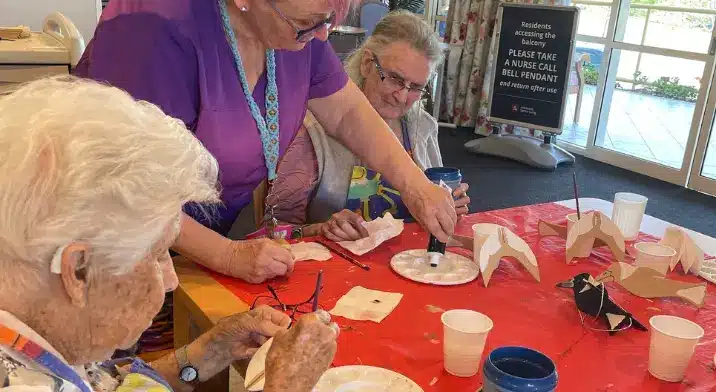
HMRI Healthy Minds researchers, Professor Frini Karayanidis, Dr Sharon Savage and Associate Professor Helen English, agree that a healthy lifestyle can reduce dementia risk but the message isn’t reaching many sectors of our community. The Community Healthy Ageing Initiative or CHAI aims to change that.
CHAI project is a strategic initiative of the Healthy Minds Research Program of the Hunter Medical Research Institute. It aims to address the fact that most people that engage with healthy ageing information are highly educated, health literate and come from relatively affluent backgrounds.
“When we give public talks, we are generally preaching to the converted. If we want to make a difference, we need to go out and proactively connect with broader sectors of the community.”
“At a time when there is increasing scepticism about science, people are more likely to engage with health information coming from people who look like them and sound like them,” says Professor Karayanidis.
“So, we need to work with community leaders to get health messages across.”
“Some people say, ‘You can’t teach an old dog new tricks’, but from a healthy ageing and dementia standpoint, we know that there are many modifiable risk factors, and that lifestyle choices in mid-late life can have a profound impact on preventing or slowing down the onset of dementia,” she says.
The Australian Government’s recent Intergenerational report stated that the number of people aged over 65yrs is set to double, with the number of people aged over 85 set to triple in coming years.
Professor Karayanidis says it is important to connect with not only older people, but also with people in their 20s, 30s and 40s, when the biggest long-term benefits can arise.
“Dementia has a 20 – 30 year incubation period. If you look after your heart, brain, social life and drink in moderation, as well as exercise and eat a good diet, you can reduce your risk of developing the disease.
“Cognitive decline doesn’t happen because of ageing, per se. It is linked to the cumulative effects of many lifestyle factors, as well as a person’s genetic risk,” says Professor Karayanidis.
In order to get this message out to a broader audience, CHAI aims to establish community-based ‘hubs’ – drop-in facilities for people of all ages to receive personalised information, assessment and guidance to make evidence-based lifestyle choices that promote healthy ageing.
CHAI hubs will be situated in familiar environments like shopping centres and community facilities and use a train-the-trainer model to facilitate learning through interactions with peers, as well as trained professionals.
A pilot hub will run from July – September 2024 at the Belmont Café, a joint initiative of Hunter Ageing Alliance and Home Instead Newcastle, attracting older people to trial social and creative activities while learning about healthy ageing.
The vision for this program is that it could be run in a self-sustaining way around the country.
“It could be like a Telstra shop. A place where you can pop in and ask questions and be directed to the services and information you need,” says Professor Karayanidis.
This ‘shop’ would provide access to lifestyle and creative arts workshops and run in partnership with organisations like Dementia Australia.
“The idea is to introduce people to appropriate activities early, and encourage lifelong engagement,” says Professor Karayanidis.
“The hubs will be run by community leaders and supported by student placement clinics, offering students an authentic experience to practice their skills – it is a win/win from that perspective. They will provide a free, easily accessible place for everyone to access information about healthy lifestyles, ageing and dementia,” says Professor Karayanidis.
Another pilot hub will soon be launch together with researchers from Sunshine Coast University. These will assess the feasibility and acceptability of CHAI hubs and support progress to an implementation trial.